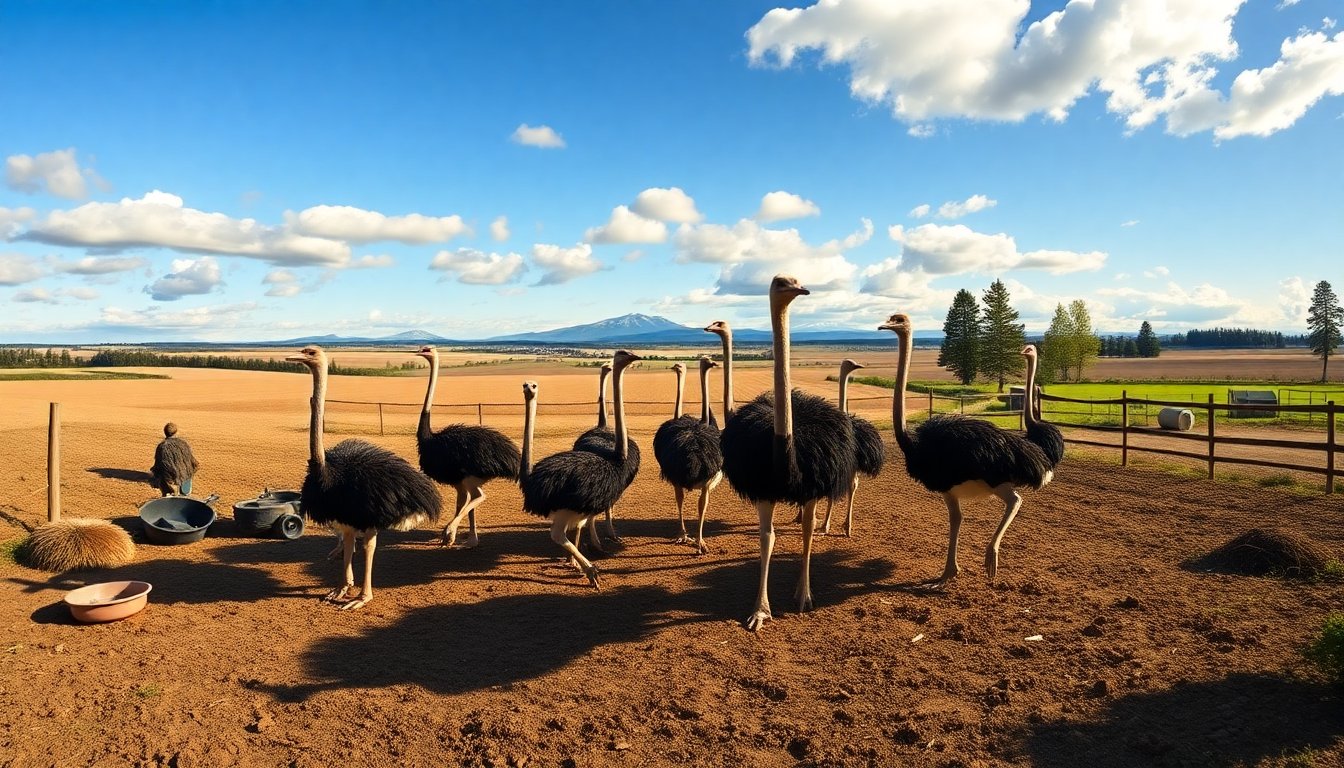Table of Contents
The recent ruling by the Federal Court of Appeal has spotlighted the ongoing situation regarding the culling of approximately 400 ostriches at a farm in British Columbia. This decision follows a temporary stay that previously protected these birds from destruction amid an avian influenza outbreak. As the legal battle progresses, the ramifications for both the farm and the broader agricultural community become increasingly evident.
Context of the Cull Order
Universal Ostrich Farms, situated in Edgewood, B.C., has been involved in a contentious legal dispute with the Canadian Food Inspection Agency (CFIA) since a cull was ordered in December 2024. This cull was prompted by an outbreak of avian influenza, which resulted in the death of 69 ostriches. The farm contends that the remaining birds have since recovered and pose no threat to public health. They assert that these ostriches hold scientific value and should not be euthanized.
The avian influenza situation has raised serious concerns in the region, leading the CFIA to take decisive action to contain the virus’s spread. The agency’s mandate to protect both animal health and public safety complicates the situation as it navigates between the health risks posed by the outbreak and the rights of the farm owners.
In light of the court’s ruling, the timeline for the cull remains uncertain, placing the farm in a precarious position as it awaits further legal decisions. The interim stay previously granted by the court offered a glimmer of hope, but the denial of an additional stay has left the future of the ostriches in jeopardy.
Legal Implications and Reactions
The Federal Court of Appeal’s latest ruling underscores the necessity of adhering to legal processes in agricultural health crises. The court has indicated that the stay motion will require resolution based on a complete record, suggesting that further hearings will be needed before any final decisions regarding the culling of the birds are made.
This decision has elicited mixed reactions from various stakeholders. Animal rights advocates express concern over the ethical implications of such culls, advocating for the welfare of the ostriches and questioning the need for their destruction. Conversely, those prioritizing agricultural biosecurity argue that the CFIA must take necessary steps to prevent the spread of avian influenza, emphasizing that public health must remain paramount.
As the situation evolves, it is evident that the balance between animal welfare and public health is a delicate one. The ongoing legal proceedings will likely attract significant attention from both the public and the media.
Future Considerations for the Industry
The outcome of this case could have far-reaching implications not only for Universal Ostrich Farms but for the entire poultry industry in Canada. If the cull proceeds, it may set a precedent for how similar situations are managed in the future. Farmers may need to reassess their biosecurity protocols and consider the potential for legal challenges when faced with mandatory culls during outbreaks.
Furthermore, as public awareness of these issues increases, there may be growing pressure for regulatory changes that better balance agricultural needs with animal welfare concerns. Stakeholders in the agricultural sector will need to engage in proactive discussions to navigate these challenges moving forward.
Ultimately, the future of the ostriches at Universal Ostrich Farms remains uncertain as legal proceedings continue. The court’s decision highlights the complexities of managing animal health crises and the need for careful deliberation regarding the application of culling practices.


